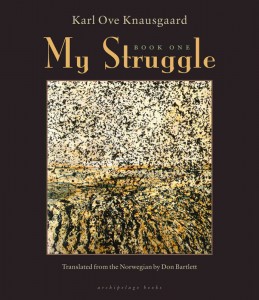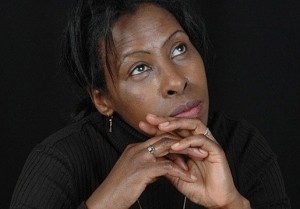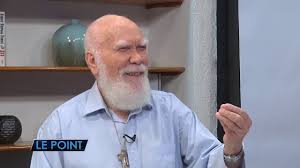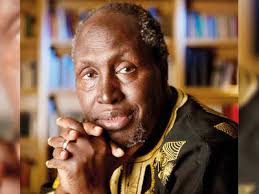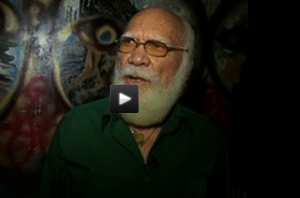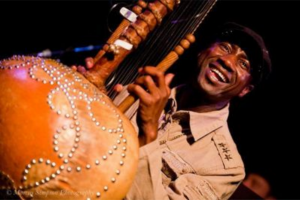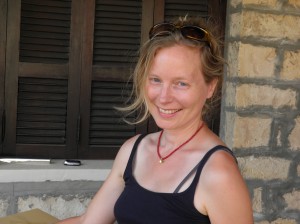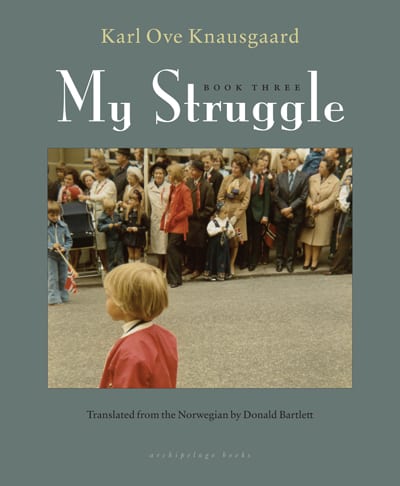
Master of the Mundane
Karl Ove Knausgaard’s encyclopedic novels
By Francine Prose
From the July 2014 issue of Harper’s, pg. 90-92
Discussed in this essay: My Struggle: Book Three, by Karl Ove Knausgaard. Archipelago. 300 pages. $27. Archipelagobooks.org
Few of us are glad to be seated, on a long-distance flight, next to a loquacious stranger who ignores the signals of our open book, our headphones, the sleep mask we pull down over our eyes. Imagine, then, that the stranger in question is a craggy, middle-aged Norwegian determined to tell us everything that ever happened to him — every boyhood memory, every random association or metaphysical speculation, every song he listened to, every book he read, every detail he can recall about his parents, his first friendships, his three children’s personalities, the diapers he changed, the meals he cooked, and the highs and lows of his marriages. Would we like to hear about how much his father liked seafood, or about the eating habits of an airport Burger King customer? The situation is not all that difficult to imagine, but what seems far more improbable is that we might actually become riveted by our companion’s story.
That unlikely scenario approximates the unusual experience – and the mystery – of reading Karl Ove Knausgaard’s My Struggle, a dense, complex, and (judging from the three volumes that have so far appeared in English) brilliant six-volume work, totalling more than 3,500 pages, that might be described as a cross between a memoir and an autobiographical novel. The series has been a critical and popular success in Europe, where it has won several important literary prizes. It was a sensation in Norway, its notoriety boosted by Knausgaard’s nervy decision to borrow the title (Min Kamp, in Norwegian) of Hitler’s literary call to arms and by the media scandals that erupted when his ex-wife and uncle objected to the way in which they had been portrayed.
In a masterful translation by Don Bartlett that follows Knausgaard’s tonal shifts between colloquial and the lyric, the first two volumes, subtitled A Death in the Family and A Man in Love, were published in English in 2012 and 2013, respectively. They gained a cult following, especially among writers, that has gradually broadened to include a large base of readers, most of whom agree that this is an unclassifiable work, a genre of its own. Knausgaard has frequently been compared to Proust, but in fact the two writers have little in common except the length and ambition of their books and their fascination with memory. Even at their most poetic, Knausgaard’s sentences are shorter and punchier than Proust’s, less ornately strung with dependent clauses. And Knausgaard seems less obsessed with recapturing the past than with escaping it. It is a tribute to his prodigious grace and skill that although he goes on and on about himself, My Struggle possesses not a hint of the narcissism and solipsism that tend to mar memoirs and autobiographical novels.
The third volume, Boyhood, was released in May, and is (like the first half of A Death in the Family) an account of the author’s childhood – his loving but distant mother, his tyrannical father, his adored elder brother, Yngve, his teachers and neighbors, and the local girls who become the objects of his first romantic obsessions. What Boyhood shares with its predecessors is not just Knausgaard’s alternations between narration and essayistic rumination but also its author’s determination to include everything, no matter how prosaic, trivial, or embarrassing. Nothing is held back, nothing is left out – not the party at which he gets drunk and alienates his wife’s friends, not the childhood game in which he and a friend defecate in the woods and later return to see what time and nature have done to the turds they’ve left in the forest.
Boyhood poses the same questions as the previous books: How do we construct a self from each experience and impression? How can the ghosts of the past be exorcised? And why, given the volumes’ unexceptional subject matter and the author’s encyclopedic approach, is the series nonetheless so hypnotic, a word that keeps cropping up in reviews? Why do we follow, with breathless excitement, the seventy-page account, in A Death in the Family, of the teenage Karl Ove’s efforts to procure beer for a New Year’s Eve gathering? Why do we so happily indulge his description, in Boyhood, of how he liked his breakfast cereal?
In this new volume, Karl Ove (as the character is called) could be Everyboy. He and his friends, a ragtag gang of Scandinavian Huckleberry Finns, search for the pot of gold at the end of a rainbow, play soccer, start fires, and visit the local dump to watch some guys shoot rats. They learn to swim, go fishing, pore over a treasured cache of porn. They grow older, compete on the playing field, in their classrooms, and in a school election. Karl Ove joins a terrible rock band with the generationally perfect name of Blood Clot and falls in love with a succession of girls who ditch him for more attractive and popular boys. He wrecks an early romance by persuading his sweetheart that they should try to break the local record for length of time spent kissing; he is mocked by the other kids when his mother buys him a swimming cap decorated with flowers; a family crisis erupts when he loses a sock. “Landscape in childhood,” Karl Ove writes of this lost-forever world in which he came of age,
Is not like the landscape that follows later; they are charged in very different ways. In that landscape every rock, every tree had a meaning, and because everything was seen for the first time and because it was seen so many times, it was anchored in the depths of your consciousness, not as something vague or approximate, the way a landscape outside a house appears to an adult if they close their eyes and it has to be summoned forth, but as something with immense precision and detail. In my mind, I have only to open the door and go outside for the images to come streaming towards me. The gravel in the driveway, almost bluish in color in the summer. Oh, that alone, the driveways of childhood!
Knausgaard is determined to record not only the incidents of the past but also the child’s way of seeing the world, before that bright view is dulled and tarnished by age. (In an interview with The Believer last year, he called the whole of My Struggle “infantile”: “It seems like a child has written it. There are childishness, stupidity, lack of wisdom, fantasies. At the same time, that’s where my creativity can be found.”)
The freshness of childhood, but also the fear. In A Death in the Family, we witnessed Karl Ove’s Pavlovian response to his father’s presence. Just the sound of Dad’s footsteps on the stairs was enough to inspire a watchful unease, perpetually on the brink of panic. And so too in the third volume the boyhood idylls come to a halt whenever Dad appears onstage to perform his petty acts of cruelty, impatience, and injustice. As stern, omnipotent, and implacable as the Old Testament God, Dad is uninterested in the difference between intentional and accidental, disobedience and carelessness, innocence and guilt. Perhaps it’s true that Karl Ove got five kroner from an old woman he and his friends helped by removing a fallen tree from a stream, but the punishment – slapping, ear-pulling, shouting, humiliation – is the same as if the boy were lying. When Dad’s capricious unfairness makes the child cry, his tears not only shame him but further enrage Dad, whose son is weak enough to cry like a girl. After his father punishes him for eating too many apples by making him eat so many apples he nearly vomits, Karl Ove fantasizes,
I could hurl him against the wall or throw him down the stairs. I could grab him by the neck and smash his face against the table. That was how I could think, but the instant I was in the same room as he was, everything crumbled, he was my father, a grown man, so much bigger than me that everything had to bend to his will. He bent my will as if it were nothing.
Yet Karl Ove monitors Dad for the slightest sign of approval and derives helpless joy from his father’s infrequent moments of contentment. A trip to the fish market and the record store, where Karl Ove’s choice of music (Elvis!) pleases Dad, ends with an almost ecstatic interlude during which Dad shows his son how to “cure” the warts on his hands by rubbing them with bacon grease. The pair’s tense relationship continues until, three quarters of the way through Boyhood, Dad leaves for Bergen, on Norway’s western coast, to “major in Nordic literature and become a senior teacher.” “Many years later,” Karl Ove tells us, “he was to say that Bergen was where he started drinking.”
That last sentence will be extremely ominous to anyone who has read A Death in the Family; everything that happens in the latest instalment is shadowed by what we have already read. This is the result of Knausgaard’s inspired decision to tell his story not chronologically but thematically, and to begin the series (more or less) at the end, with the death of the father whose influence he has spent his adult life trying to escape. The first volume starts with a meditation on death, features the aftermath of what may be the most horrific (and the most squalid) demise in literature, and concludes with Karl Ove contemplating his father’s corpse:
And death, which I have always regarded as the greatest dimension of life, dark, compelling, was no more than a pipe that springs a leak, a branch that cracks in the wind, a jacket that slips off a clothes hanger and falls to the floor.
For some time, Dad had been living with his mother, Karl Ove’s grandmother, drinking himself to death, while Grandma intermittently aware of her surroundings, feeble, incontinent, and forced to witness the spectacle of her son’s slow suicide, kept up with him. Mother and son have constructed a sort of fortress of garbage; the rooms of Grandma’s house are full of hundreds of liquor bottles, filthy clothes, old newspapers, rotten food; the furniture is covered with excrement. The brothers must clean up the mess. Knausgaard spares us nothing – we see the sheetless, “piss-permeated” mattress and decomposing clothes; the prodigious tubs of Ajax, Jif, Mr. Muscle, Klorin; his own bouts of weeping and vomiting.
We read Boyhood with a highly particular combination of foresight and hindsight, knowing the destination to which Dad and Grandma are heading. When Karl Ove tells us how much he loves his grandmother, who smells so good and is generous with physical affection, we cannot forget the heartbreaking old woman who will wind up as Dad’s housemate and drinking buddy, in whose living room Dad will die. Afterwards, she will try to manipulate her visiting grandsons into having a drink and will urinate on the floor in the midst of a conversation.
Boyhood captures a thing rarely seen in literature: “the conversion of a child into a person as it is happening,” as John Berryman said of Anne Frank’s diary. Reading about young Karl Ove is a bit like watching the childhood home movies of a friend – we observe the physical features and personality quirks that will harden and become visible in the adult we know. Karl Ove’s best male friend and confidant in A Man in Love is Geir, with whom he has soul-searching Dostoevskian conversations about human nature and literature. In Boyhood, we again meet Geir, this time in an earlier incarnation as Karl Ove’s childhood best friend and partner in mischief.
We already know about Karl Ove’s propensity for erotic obsession: in A Man in Love, that mania focuses on Linda, a poet and writer (and sufferer from bipolar disorder), who eventually becomes his wife and the mother of his three children. In Boyhood, too, Karl Ove becomes infatuated, this time with a procession of local girls who tend to merge in the reader’s mind into one girl whom he cannot stop thinking about, who shows a passing interest in him – and then dumps him. The naïve agonies Karl Ove endures over these crushes in Boyhood seem like innocent rehearsals for the scene, in A Man in Love, in which, rejected by Linda, he returns to his room at a writer’s seminar and deliberately cuts his face with a shard of glass. A broken heart, a squalid death, a lifelong friendship: it is Knausgaard’s structure as much as his subject that shades every moment, no matter how seemingly mundane, with significance.
In the first three books of My Struggle, Knausgaard mostly lets us draw our own conclusions about his parents’ marriage, which seems to involve efforts on the part of both spouses to find pressing professional reasons for living apart. By contrast, they contain an unusually complete dissection of Karl Ove’s marriage to Linda, alternately passionate, resentful, joyous, tedious, grateful, and contentious. In the publicity surrounding My Struggle, there’s been a surprisingly intense interest in his description in A Man in Love of his mixed feelings about changing his children’s diapers. It is rare to find a male author so engaged by (and so honest about) the profound pleasures and the numbing boredom of parenthood, and the problem – nearly always considered a woman’s problem, though serious women novelists tend not to write about it, either – of how to balance the demands of being a writer with the very different demands of raising children.
Karl Ove’s anxieties are partly the result of his fear that he and Yngve will repeat Dad’s failures, of his uncertainty about “whether what Dad had handed down to us was in our bone marrow or whether it would be possible to break free.” In Boyhood, he reflects,
I have my own children and with them I have tried to achieve only one aim: that they shouldn’t be afraid of their father. They aren’t. I know that. When I enter a room, they don’t cringe, they don’t look down at the floor, they don’t dart off as soon as they glimpse an opportunity, no if they look at me, it is not a look of indifference, and if there is anyone I am happy to be ignored by, it is them. If there is anyone I am happy to be taken for granted by, it is them.
By the time we reach this section, we understand what this small familial happiness has cost him. Karl Ove struggles with the shaming but undeniable fact that pushing a stroller and bringing his children to classes and parties makes him feel emasculated. In the second book, we read about the toll taken on both Karl Ove and Linda by their bickering over housework and child care:
I wanted the maximum amount of time for myself with the fewest disturbances possible. I wanted Linda, who was already home looking after Heidi, to take care of everything that concerned Vanja so that I could work…All our conflicts and arguments were in some form or another about this, the dynamics. If I couldn’t write because of her and her demands, I would leave her, it was as simple as that…The way I took my revenge was to give her everything she wanted, that is, I took care of the children, I cleaned the floors, I washed the clothes, I did the food shopping, I cooked and earned all the money so that she had nothing tangible to complain about, as far as I and my role in the family were concerned. The only thing I didn’t give her, and it was the only thing she wanted, was my love. That was how I took my revenge.
The very things that keep Karl Ove from writing – the responsibilities of being a husband and a father – become the subject of his writing in the moments he is freed from them. Whereas many novelists take us on the whaling voyage or the safari – as far as possible from the trivia of daily life – Knausgaard trains his eye entirely on trivia, making from it an orchestral plot peopled by characters who happen to be his family (or himself). In his completist determination, he is willing to surrender his privacy, his dignity, and the impulse to seem like a good person. As Knausgaard told The Paris Review last year, it was in fact “the belief that the feeling of shame or guilt signified relevance that finally made me write about myself, the most shameful act of all.”
There are few activities more private or intimate than reading. It is something we do in solitude and quiet, yet the paradox is that when we read we are allowing – inviting – another voice to speak to us, in silence. The voice of My Struggle – as well as its cast – take up permanent residence in our consciousness. For how can we not be changed by 3,500 pages of such personal narrative? Afterward, we can never see a father pushing a stroller or a boy riding his bike without thinking of Karl Ove. Indeed, our interest is sustained in large part by our relentless, almost brutal intimacy with the characters: they are a family we know almost as well as we know our own.


